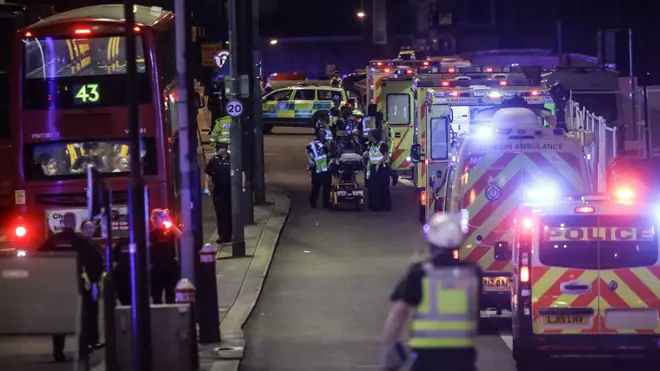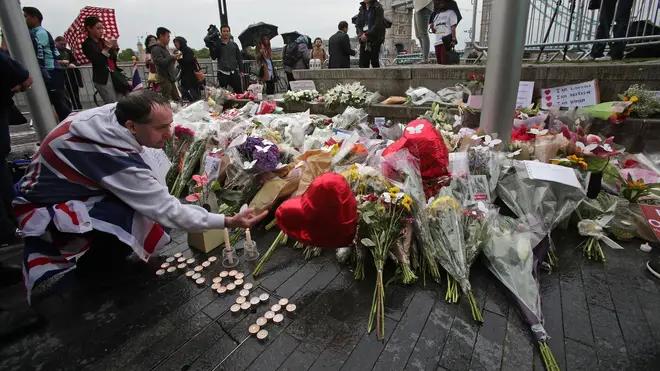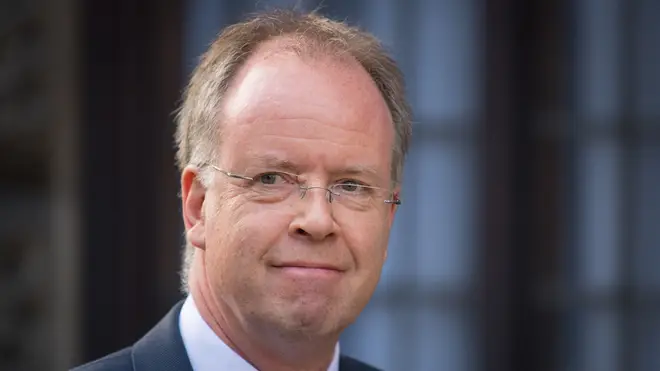
Nick Ferrari 7am - 10am
1 November 2019, 15:44

The Chief Coroner has called for tougher laws cracking down on extremist propaganda in the wake of the London Bridge terror attack.
Eight people were killed and 48 others seriously injured when terrorists used a hired van to plough into pedestrians before attacking people at random around Borough Market on June 3 2017.
Mark Lucraft QC said current legislation means it may be impossible for police or MI5 to act against fanatics even when "the material is of the most offensive and shocking character".
He suggested new laws could be introduced to tackle extremist material in the same way legislation has criminalised the most offensive pornography.
Attackers Khuram Butt, 27, Rachid Redouane, 30, and Youssef Zaghba, 22, were lawfully killed after they were shot dead by armed police, an inquest jury found.

A separate inquest concluded that Xavier Thomas, 45, Chrissy Archibald, 30, Sara Zelenak, 21, James McMullan, 32, Kirsty Boden, 28, Alexandre Pigeard, 26, Sebastien Belanger, 36, and Ignacio Echeverria, 39, were unlawfully killed.
The coroner highlighted 18 "matters of concern" in a report published on Friday, which said "there is a risk that future deaths could occur unless action is taken".
Butt, who was a subject of interest (SOI) in an active MI5 investigation at the time of the attack, had looked at extremist material online in the months and years leading up to it.
The inquest heard that police and MI5 did not recognise the threat posed by ringleader Butt, despite his association with Islamic State fanatic Anjem Choudary and an appearance in the documentary The Jihadi Next Door.
The investigation was twice suspended due to pressure on resources and the authorities did not pass on tip-offs about his extremism, including one from a family member.
Mr Lucraft said: "While there are offences of possessing a document likely to be useful to a person in committing an act of terrorism (Section 58, Terrorism Act 2000), and of disseminating terrorist publications (Section 2, Terrorism Act 2006), there is no offence of possessing terrorist or extremist propaganda material.

"It may be impossible to take action even when the material is of the most offensive and shocking character.
"The evidence at the inquests indicates to me that the lack of such an offence may sometimes prevent counter-terror police taking disruptive action which could be valuable in their work of combating terrorism.
"I have formed the view that consideration ought to be given to legislating for further offences of possession of the most serious material glorifying or encouraging terrorism."
He added: "Although MI5 must be able to prioritise and divert resources at times of greatest demand, the suspension of priority investigations is a matter of legitimate public concern."
Mr Lucraft suggested that systems for suspending investigations should be improved and that work could be scaled back rather than halted at times of high demand.
But he said it would be wrong to criticise the pre-attack investigation, calling the work of MI5 and police "generally thorough and rigorous."
Families of the victims also spoke of "missed opportunities" to prevent the atrocity and criticised the "slow response" of London Ambulance Service, which meant others had to step in to give aid to casualties.
Those responsible for concerns raised in the report, which include Home Secretary Priti Patel, have until January 10 to respond, setting out details of action taken or proposed, or why no action will be taken.